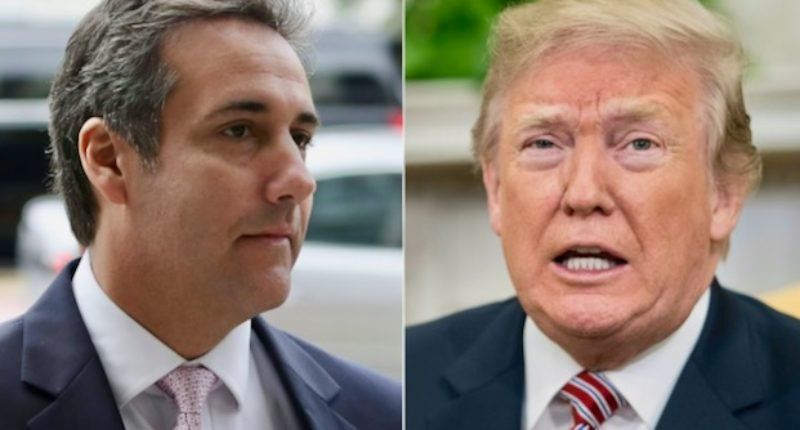Though Donald Trump is now calling for his former "fixer" Michael Cohen to "serve a full and complete sentence," one legal expert said his past tweets suggesting the attorney's innocence should be taken into consideration when he's being sentenced.
Lawfare editor-in-chief Benjamin Wittes noted Monday that when Cohen first pleaded guilty in August to campaign finance violations, Trump asserted via tweet that what his former attorney did was not criminal.
"Michael Cohen plead [sic] guilty to two counts of campaign finance violations that are not a crime," the president wrote on August 22, 2018.
Now that the attorney has copped a plea deal with special counsel Robert Mueller, however, the president is changing his tune.
On the morning of December 3, Trump scoffed at the concept of Cohen asking for no jail time in exchange for his cooperation with Mueller, pointed out all the illegal acts he committed "unrelated to Trump" and demanded the book be thrown at him.
Wittes noted that in August, former FBI General Counsel William Baker noted that Trump's statement about Cohen's supposed innocence could be legally binding.
"So, what to make of the president’s tweet that he does not think that what Michael Cohen did was a crime?" Baker wrote for Lawfare. "Is that a legal determination by the president that is binding on the executive branch, including the U.S. attorney’s office? Are government attorneys now precluded from prosecuting anyone else who might have been involved in this conduct, including the president himself?"
The former FBI counsel correctly predicted that the Justice Department would ignore the tweet.
"The Justice Department is likely to assess that whatever it is, the tweet is not a legal determination by the president and is not binding on the agency," he wrote. "But what does that say about the functioning of the executive branch today?"
Trump's public statement about Cohen's guilt is another such statement that could be taken in a legally-binding context, Wittes mused before noting what he would do were he Judge William Pauley III, the Southern District of New York judge presiding over the attorney's sentencing.
"If I were Pauley," he wrote, "I would ask the attorney representing the executive branch, of which President Trump is the embodiment, why he or she is not bound by the policy view and legal position that Cohen 'should . . . serve a full and complete sentence.'"
Because Mueller is a DOJ appointee, the reasoning continues, it would also not be inappropriate to ask the government's attorneys "what business the Justice Department has prosecuting Cohen at all for what the president has described as 'two counts of campaign finance violations that are not a crime.'"
"I would demand to know what business a lowly line attorney for the government has in contradicting the president on a matter about which the executive branch has taken a position," Wittes wrote. "I might even force the special counsel’s office to brief the question of its authority to take a position directly adverse to the president’s own."
Were he the SDNY judge, Wittes said that he would take that line of reasoning not to undermine Mueller, but to illustrate "that the president’s words on a matter of law cannot be meaningless to the executive branch" when the matters Trump weighs in on are before a judge.
Leave a Comment
Related Post
